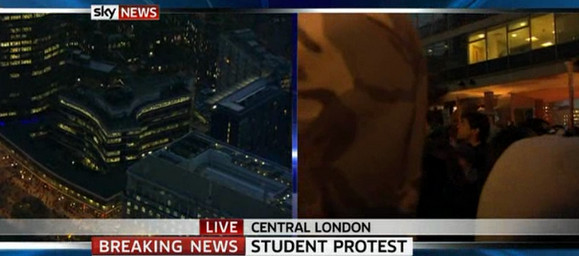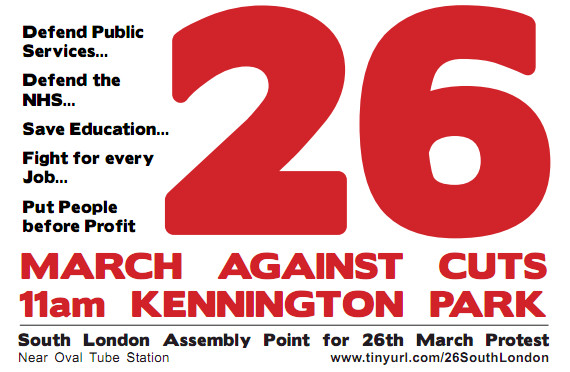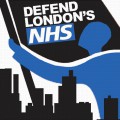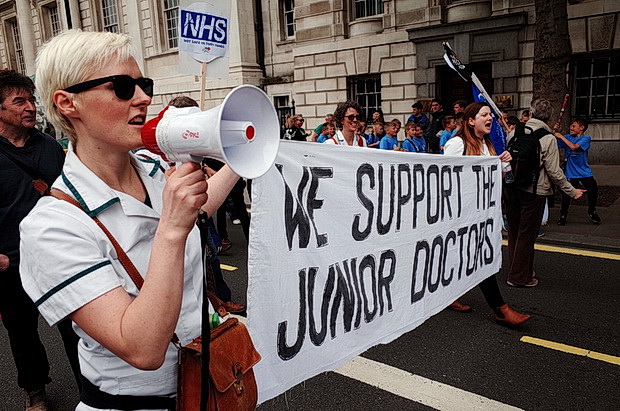
On Saturday, a large march progressed through central London in opposition to government plans to scrap NHS bursaries.
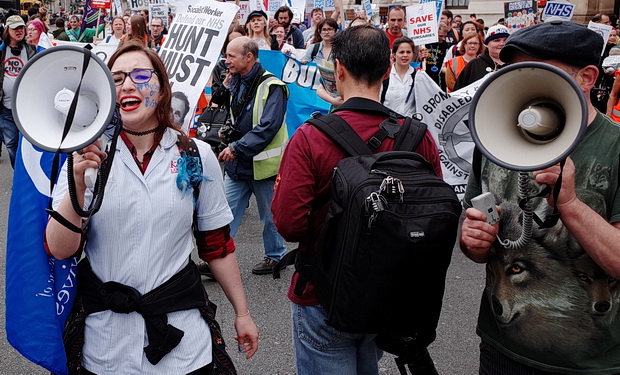
Workers fear that scrapping NHS bursaries will leave student nurses, midwives and other health professionals with over £52,000 worth of debt, and will discourage many people from becoming healthcare professionals, with disastrous repercussions for patient safety.
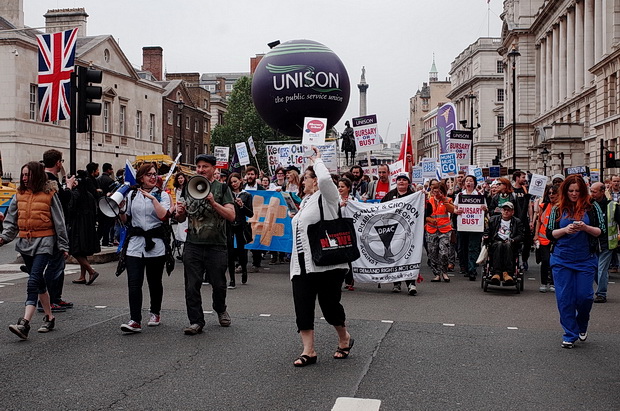
UNISON and the NUS commissioned a report by London Economics and found that removing the bursary will:
- Put thousands of healthcare students and graduates into debt.
- Reduce the number of people taking up healthcare places in higher education by as many as 2000.
- Cause a fall in income for Higher education institutions of between £55m to £77m per student intake.
- Lead to a significant increase in staff shortages in the NHS which will increase dependancy on agency and overseas staff. The costs associated with this could wipe out all the potential savings the government claims removing the bursary will make.
You can read the report in full here.

Assembling at St Thomas’ Hospital on Saturday 4th June, the march moved through central London. I caught up with them on Whitehall and grabbed these images:
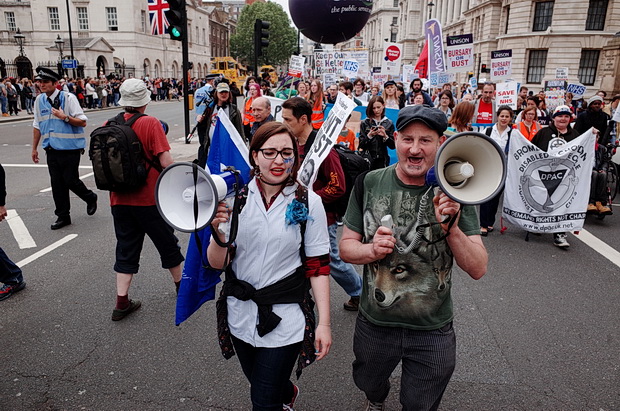
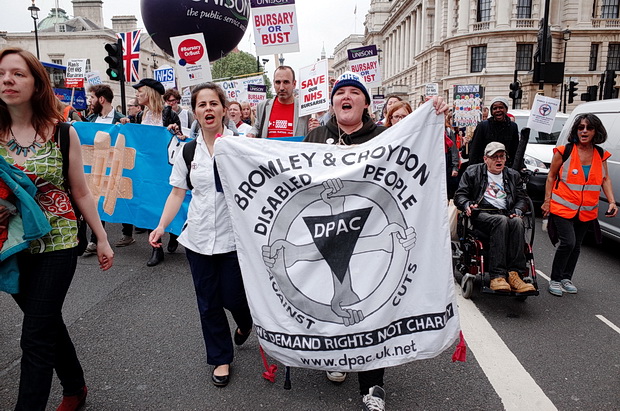
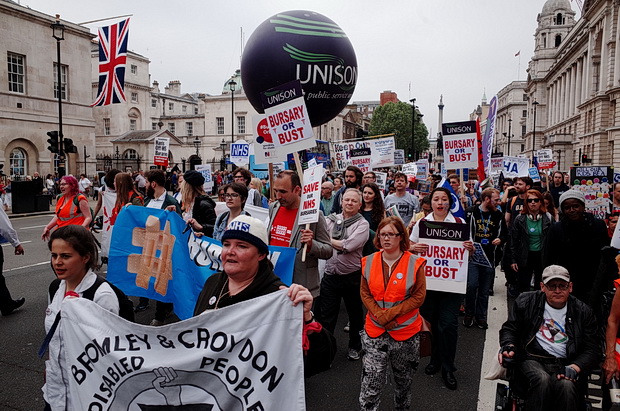

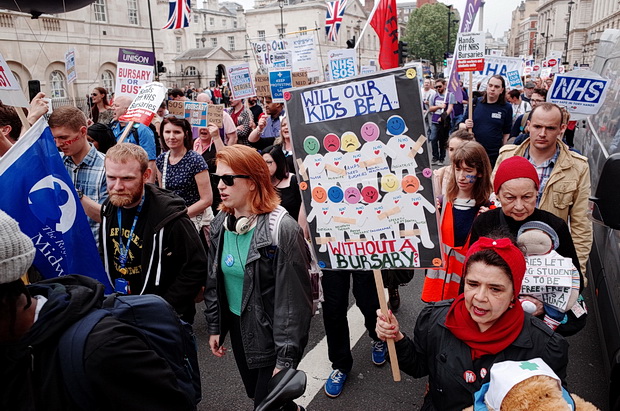
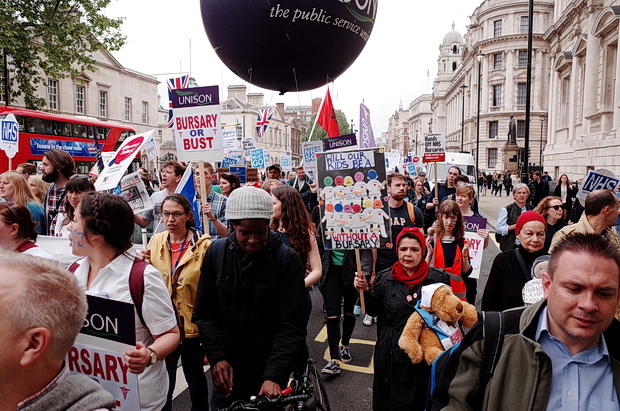
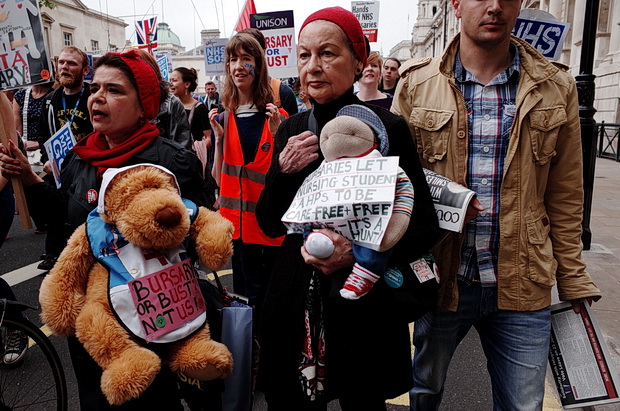
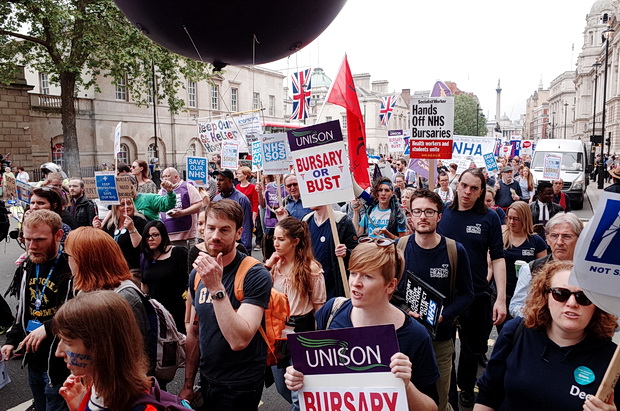
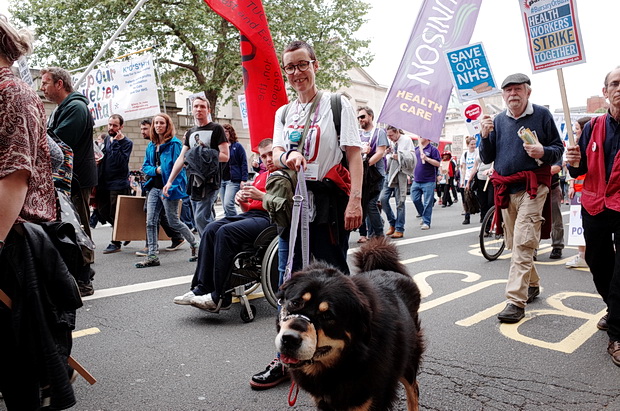
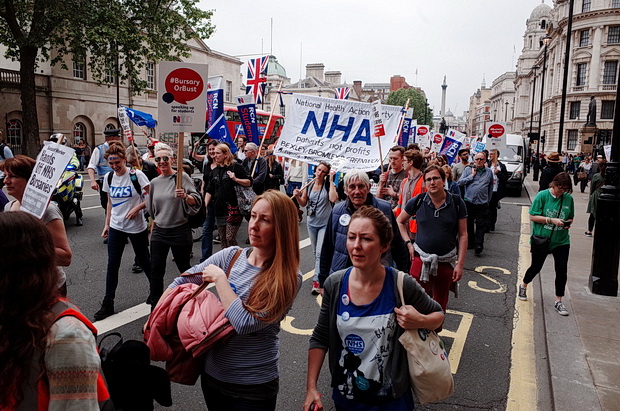
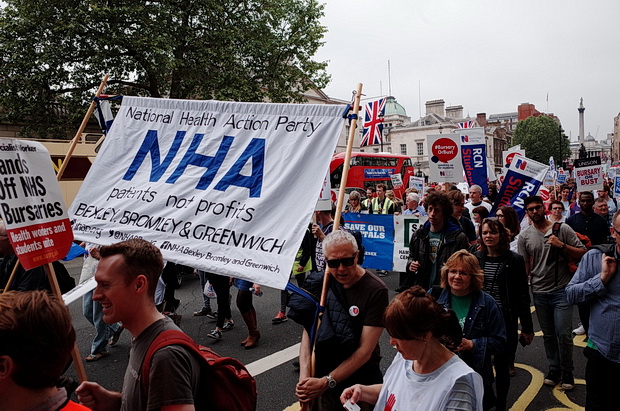
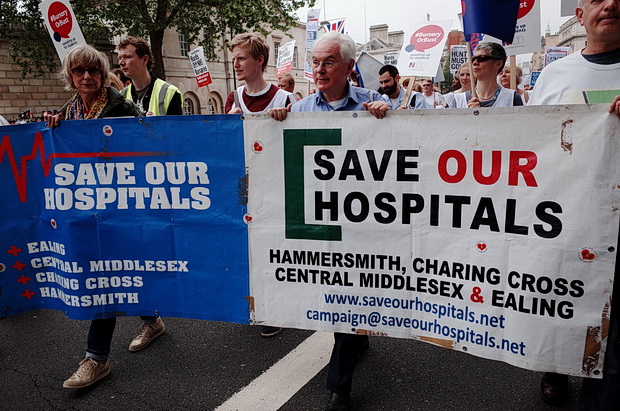
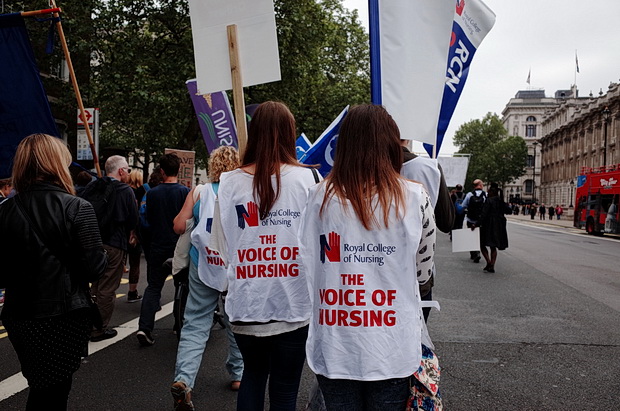
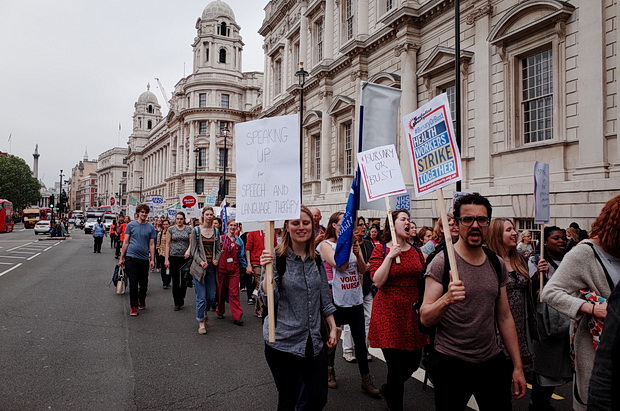
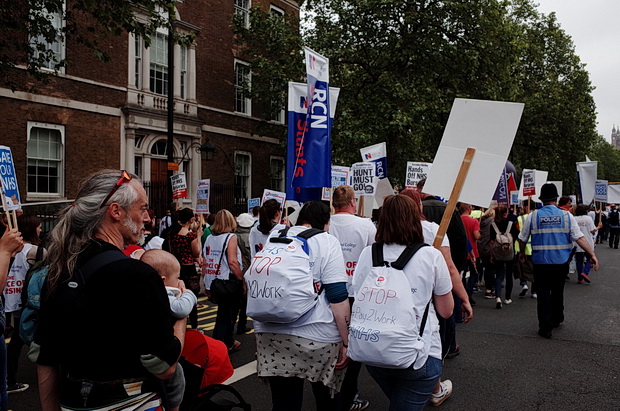
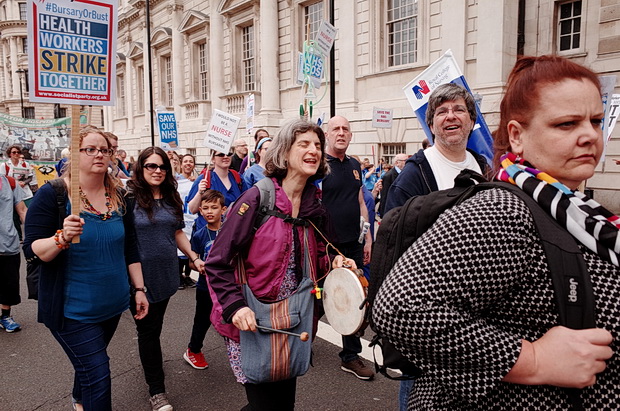
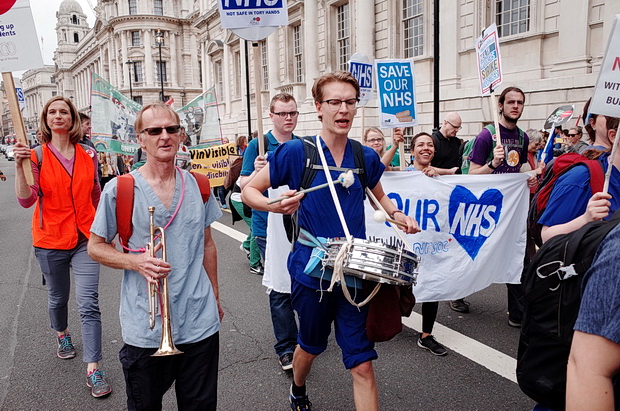
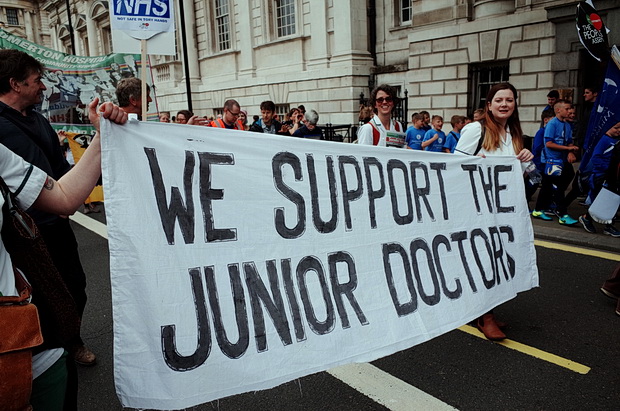
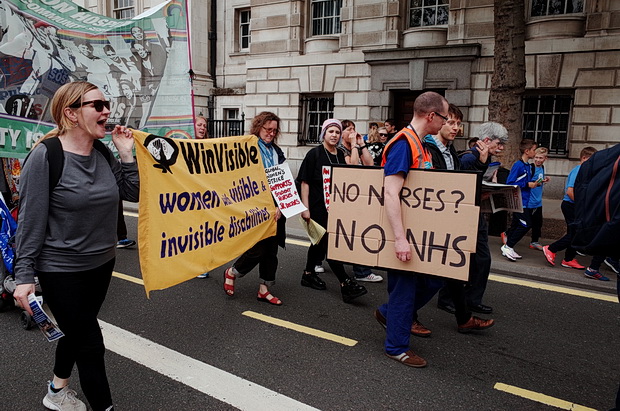
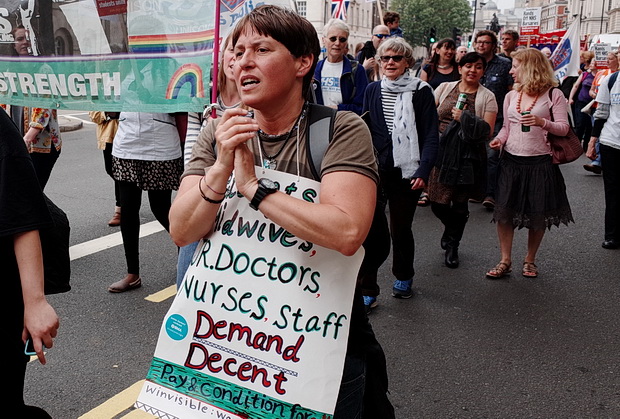
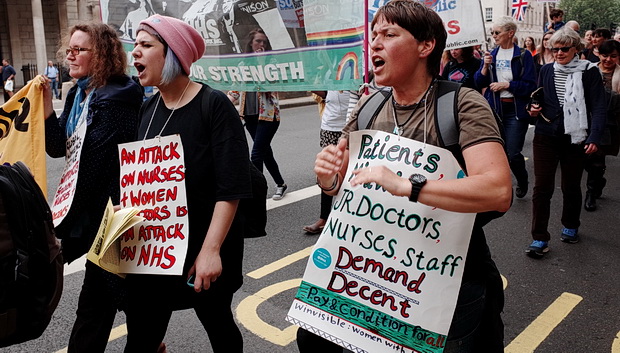
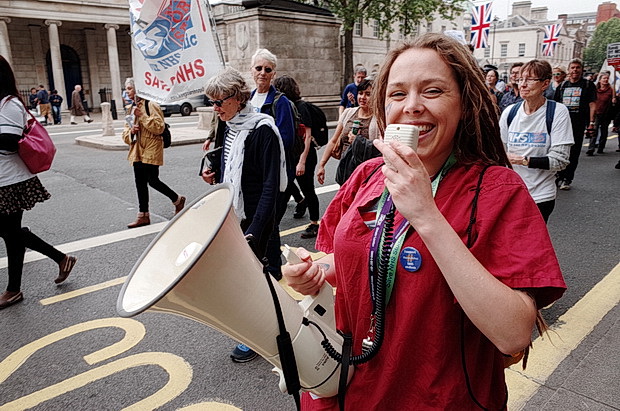
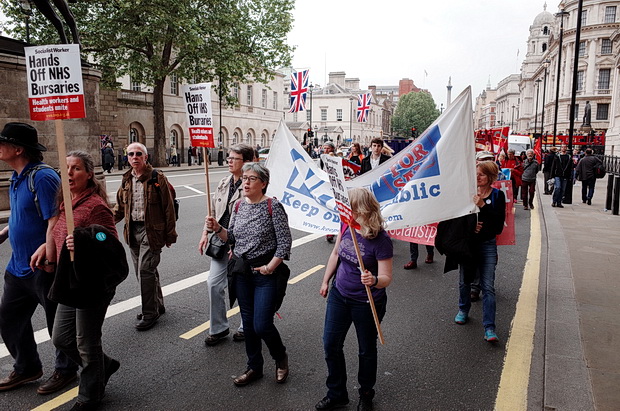
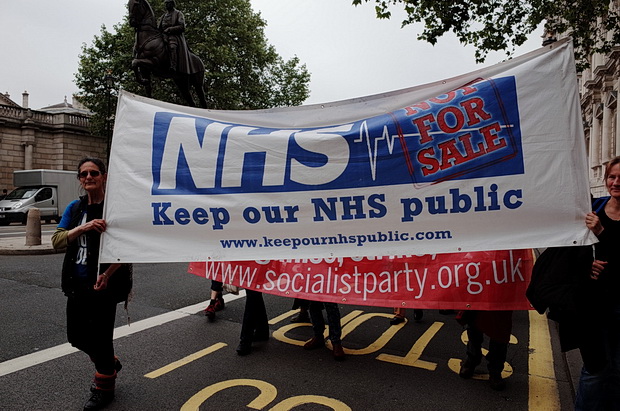
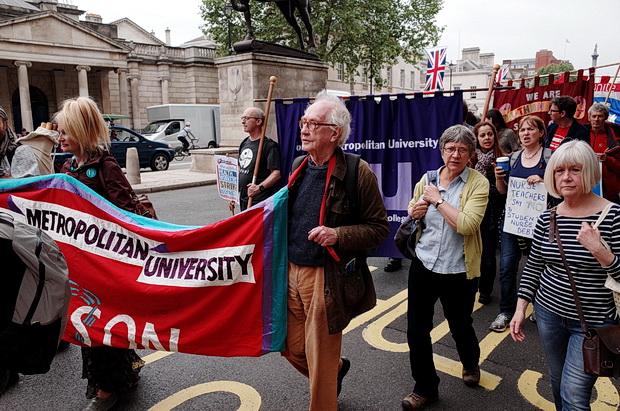
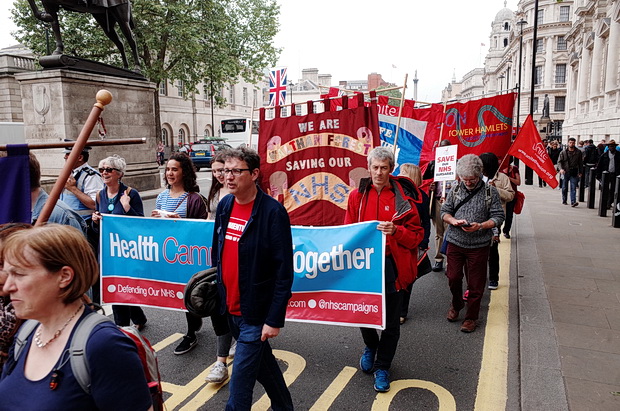
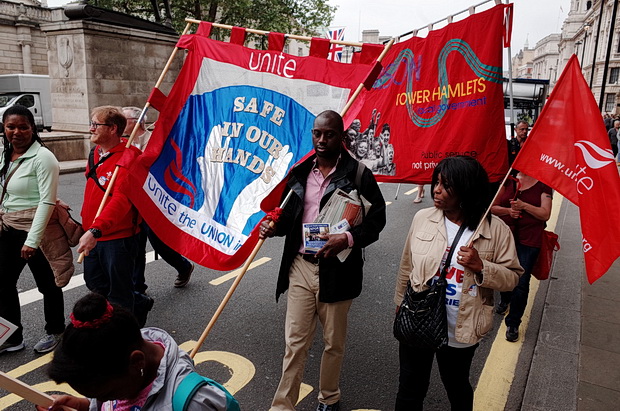
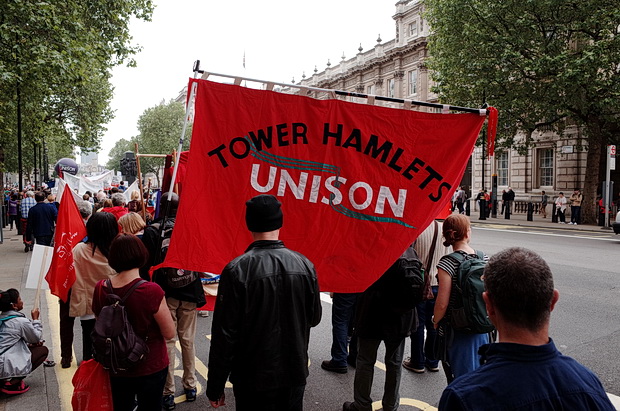
More info
Here’s the full text from Our NHS explaining the background to the march:
Student nurses spend long hours caring for the sick – they shouldn’t have to ‘pay to work’, and the attack on their bursary is a key part of government attacks on the NHS.
The NHS is having to spend untold sums to defend its services from takeover by Virgin and other private firms – and it’s losing the fight. Just this week, the local NHS provider lost its battle to keep Kent’s community health services in the NHS, and the contract will now be awarded to Virgin. As the report says, “It is not known how much the three NHS organisations have spent on legal fees.”
But such costs are everywhere in the marketised NHS – the additional administration costs of running the NHS as a market are estimated to be at least £10bn a year and maybe as high as £30bn a year.
We should remember that when we hear that the NHS needs further ‘efficiency savings’. Or that our junior doctors don’t deserve a fair salary.
Or that we should force healthcare students to pay to work, even?
Because that’s exactly what is happening with the proposed changes to the NHS bursary. On the 4th June, outside St. Thomas’ Hospital, students, staff and patients will be gathering to fight for our NHS. To say that we disagree with NHS bursary changes which ask students to pay for the privilege of giving care to the most vulnerable.
We will march to the Department of Health and cry out that we are still willing to fight for our NHS. Not just because it is a disgrace to make anyone to pay to work but because our NHS will not be able to cope with the loss of thousands of future staff.
If you support us, if you still have the will to fight for your health service because you know that you will one day need it, then join us. Our ancestors sacrificed much for us to have the NHS in a time of true austerity.
And this year, junior doctors, community pharmacists, healthcare students and most importantly patients, have all had to fight for our human right to healthcare. It has been a struggle for everyone involved but it is worth it because we still believe in the NHS. We still believe in the principle of a universal, publicly funded and organised healthcare system, cradle to grave.
It is not just a moral obligation but one which is backed up by evidence. Private healthcare does not work. It does not improve patient care or reduce costs.
What it does do is make it more likely for you to have unnecessary treatment or to become bankrupt, but it is not a system which should be implemented in a country which is aiming to provide a cost-effective and efficient health service. It is a neoliberal monstrosity. And it’s beginning to be implemented here, with the costs borne by staff, healthcare students, and patients alike.
Chat about this dispute on the urban75 thread (over 600 posts)




